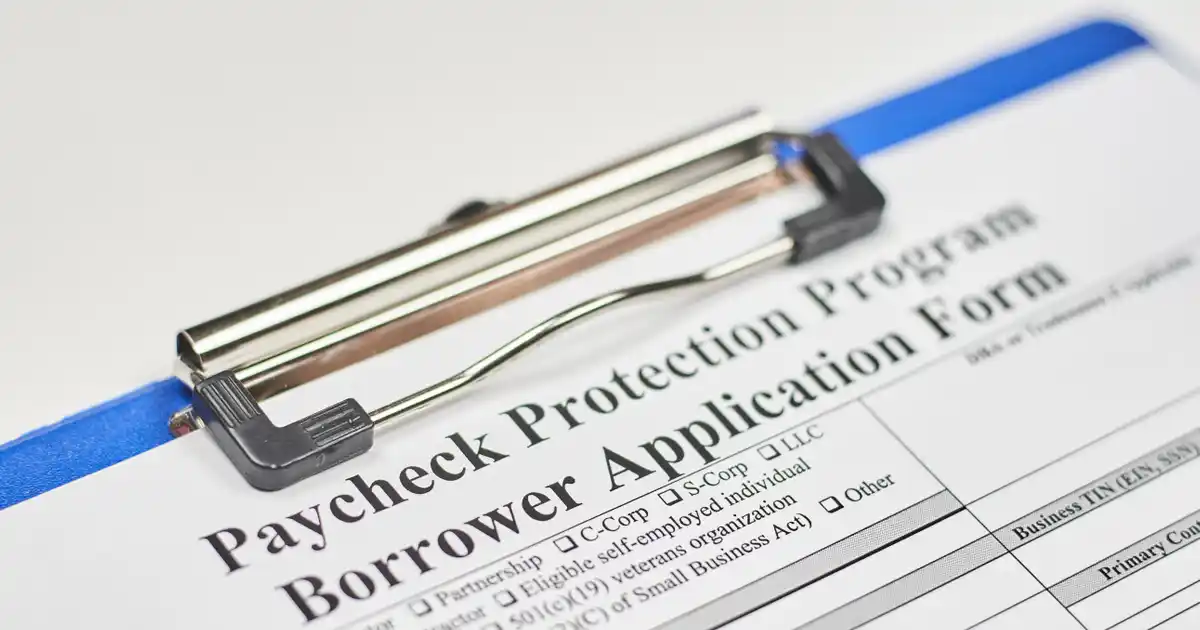- Your 2021 tax return is due on April 18 or 19, depending on which state you live in.
- The tax brackets changed only slightly from last year.
- Filing electronically is the easiest and fastest way to file your tax return.
- The IRS is taking new steps to fight against tax fraud.
It’s that time of year again. Tax season. Even if most of us dread the annual ritual of filing our taxes and hoping for a return, the deadline to submit a tax return to the Internal Revenue Service (IRS) is unavoidable. Sadly, death and taxes remain the only certainties in life.
There are several new policies and procedures in place for the 2022 tax season. (That is, your return for the 2021 calendar year.) You’ll want to be away of these changes when filing your return, including any pandemic-related ones. Here’s everything you need to know about the 2022 tax season.
Tax Returns Are (Still) Behind
As was the case last year, the IRS is still behind in terms of processing taxes and issuing refunds. Like most organizations, the pandemic hit them hard in terms of manpower. So expect delays this year, which could potentially be even longer than last year. On January 12, the National Taxpayer Advocate issued its 2021 report to Congress and stated: “The IRS is in crisis.”
The main reason for the delays in processing tax returns is the numerous breakdowns at the IRS’ call centers. There have also been delays processing the responses to IRS notices sent to taxpayers. Most of these issues don’t look likely to be resolved anytime soon. Again, expect delays this year. So your best plan should be to…
 Shutterstock
ShutterstockFile Early (And Electronically)
To help speed up its processes, the IRS is strongly recommending that you file your taxes as early as possible this year. Not only that, but file them electronically. If you’ve been clinging to a paper and snail-mail return, you really should make 2022 the year you finally switch to digital. It’s quick, it’s easy, and it will also speed up any potential tax refund you might be entitled to.
As it does every year, the IRS is also warning that inaccurate tax filings will result in lengthy processing delays. Given this reality, it might be beneficial to shell out some extra money to hire an accountant or professional tax preparer to handle your taxes this year.
Longer Filing Deadlines
Finally, some good news for procrastinators. The deadline for individuals to file their taxes this year has been extended to April 18. This is because the regular deadline of April 15 falls on Washington, D.C.’s Emancipation Day holiday, a recognized day off for the city and district.
Taxpayers in Maine and Massachusetts also get one more day to file their taxes this year. Those two states celebrate Patriots’ Day on April 18, so they have a one-day reprieve and must file their tax notices by April 19 of this year. Unfortunately, that only gives you a couple extra days compared to the normal tax deadline day of April 15.
 Shutterstock
ShutterstockKey Dates
Other key dates related to the current tax season to keep in mind include the following:
- January 24: First day you can file a federal tax return.
- January 31: Deadline for employers to give employees Form W-2 for filing.
- April 18: Last day to file your 2021 tax return, request an extension, and pay taxes owed.
- April 19: Last day to file your 2021 tax return for Massachusetts and Maine residents.
- October 17: Due date to file if you request and are granted an extension.
You don’t want to be late with any of your filings or tax payments. The IRS will just impose late penalties or additional interest fees, costing you more. If you can’t meet one of these deadlines for whatever reason, make sure you contact the IRS and officially request an extension.
Deductions and Brackets
As is the case every year, there are changes to the deductions and tax brackets. The big change being that the standard deduction for 2021 increased to $12,550 for single filers and $25,100 for married couples filing jointly.
For the 2021 tax year, the tax rates remain the same. However, there were some some slight changes to the brackets. Basically, the brackets have been adjusted by a few hundred dollars from 2020 to account for inflation. You can check out the changes (and more information about tax brackets in general) in this article.
New brackets for 2022:
| Tax Rate | Single | Married (Filing Jointly) | |
|---|---|---|---|
| 10% | $0 to $9,950 | $0 to $19,900 | |
| 12% | $9,951 to $40,525 | $19,901 to $81,050 | |
| 22% | $40,526 to $86,375 | $82,051 to $172,750 | |
| 24% | $86,376 to $164,925 | $172,751 to $329,850 | |
| 32% | $164,926 to $209,425 | $328,851 to $418,850 | |
| 35% | $209,426 to $523,600 | $418,851 to $628,300 | |
| 37% | $523,601 and higher | $626,301 and higher |
 Shutterstock
ShutterstockCovid-19 and Taxes
Unfortunately, the Covid-19 pandemic is still a thing. Some of the Covid-related financial aspects of 2021 could definitely impact your 2021 tax return. Here are some things to keep in mind when filing your return this Spring:
Stimulus Checks
In 2021, the IRS sent a third round of stimulus checks to millions of Americans — up to $1,400 for individuals and an additional $1,400 for dependents. The good news is that the stimulus check does not count as taxable income.
Instead, stimulus checks are being treated like a refundable tax credit for 2021. This means any stimulus money received will not impact your tax situation or cause you to have a higher or lower refund.
Paycheck Protection Program (PPP) Loans
The 2020 Coronavirus Aid, Relief, and Economic Security (CARES) Act tried to help struggling small business owners stay afloat by offering them Paycheck Protection Program (PPP) loans.
As long as these loans were used for certain business expenses — payroll, rent or interest on mortgage payments, and utilities, to name a few — these loans were designed to be “forgiven” by the IRS. That means they won’t negatively affect your 2021 taxes. You may be asked to prove how you spent these PPP loans, though, so be prepared. If you spent them on non-approved expenses, the IRS may demand you pay them back.
Unemployment Benefits
As the pandemic hit, many Americans found themselves out of work (at least temporarily). A surging number of them turned to unemployment insurance for help. Though the first $10,200 of unemployment benefits were made tax-free in 2020, that is not the case in 2021.
If you were unemployed in 2021 and collected benefits (and didn’t have any taxes withheld from those benefits), then you should be prepared to now pay taxes on those benefits. You unemployment benefits do count as taxable income. How much you ultimately owe will be based on the amount of unemployment benefits you received.
 Shutterstock
ShutterstockPhoto ID Might Be Required
In its ongoing efforts to combat fraud, the IRS is implementing ID.me this year. It’s a system that utilizes facial recognition software to log into your online IRS account. To successfully log into your IRS account, you may have to take a selfie and upload a photo of your driver’s license or passport to set up ID.me and verify your identity.
Anyone who is technology challenged, or just doesn’t want to participate in facial recognition software, can use the IRS call center instead. Just be prepared for long wait times if you need to call the IRS directly.
Update: The IRS is backtracking on this plan. There were numerous privacy and ethical concerns.
IRS Is Ramping Up Enforcement
New IRS enforcement agents (otherwise known as ‘auditors’) were brought onboard over the last year as part of the IRS’s 2021 hiring spree. They are now finishing their training and will be released into the field in time for tax filing season this year. That’s bad news for anyone trying to sneak in a few extra phony tax deductions or credits.
It looks like the IRS isn’t even done beefing up its enforcement ranks. The agency recently announced they are hiring 200 more tax attorneys, to be deployed for the 2022 tax filing year. Suffice to say, the IRS is taking tax enforcement very seriously.
 Shutterstock
ShutterstockEnforcement Focuses
In case you’re wondering, the IRS is mostly targeting small business owners and self-employed people with its enforcement measures. The IRS recently combined several internal enforcement units into one to streamline and better coordinate its efforts in this regard. You may think it’s unfair for the IRS to target the middle-class. However, they’ve readily admitted that they just don’t have the resources to go after the whales of tax fraud.
If you are self-employed or run a small business, you should be extra vigilant with your tax return this year. Ensure all your filings are accurate and compliant, especially with any of the changes or requirements for the 2021 tax year.
The Bottom Line
While time consuming and stressful, filing your annual tax return can be made easier if you’re aware of the latest policies, procedures, and deadlines. Remember to file an accurate return early and try to do so electronically. This is the best way to avoid any delays.
Also, keep in mind any impacts that Covid-19 may have had on your income and tax situation during 2021. The IRS is going to be especially vigilant when it comes to any benefits received during the pandemic. We wish you good luck and a big tax return from the IRS.








